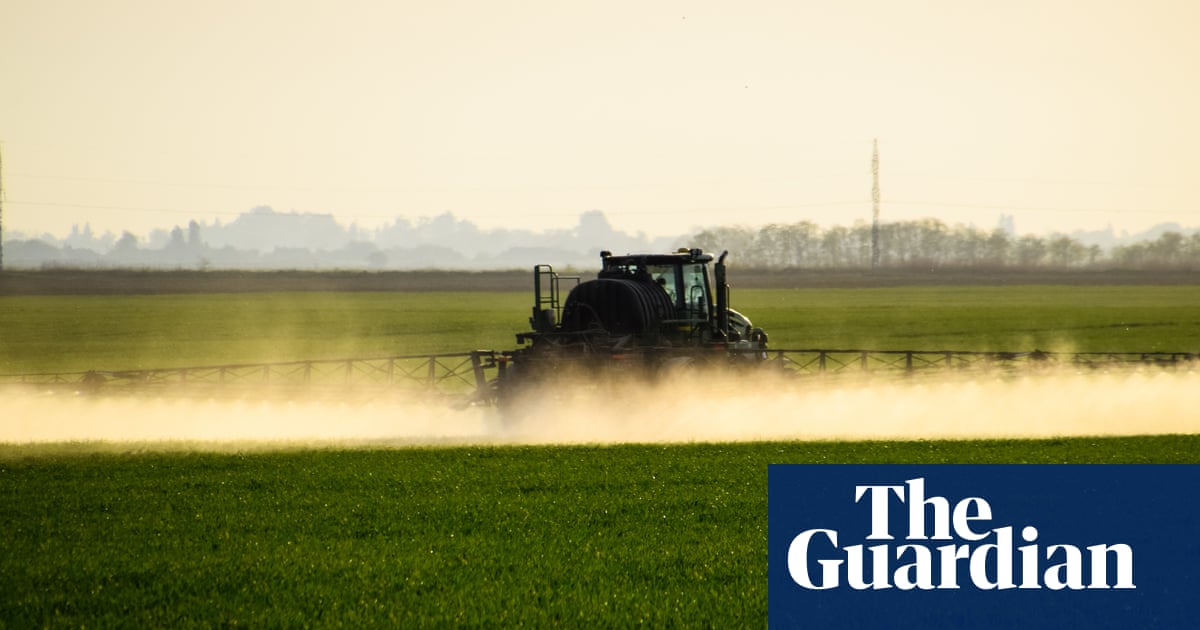
The UK is exporting its pesticide footprint to other countries, environmentalists say. A new report, from the Pesticide Action Network UK, has found that increasing trade with Brazil could fund the use of harmful pesticides that are banned in Britain.
The Brazilian government is currently pushing through a bill that would slash laws to protect human and environmental health from pesticides. Even without this new package of laws, Brazilian farmers are allowed to use almost double the number of hazardous pesticides as those in the UK, including the lethal herbicide Paraquat, which has caused tens of thousands of deaths across the world from acute poisoning, and neonicotinoids, which are toxic to bees.
Campaigners have said a reliance on increasing trade with Brazil after Brexit could incentivise the use of these pesticides and degrade the environment in that country.
Vicki Hird, sustainable farming campaign coordinator at Sustain, said: “Most UK consumers have no idea that some of the meat they’re eating has been fed on soya grown using highly toxic chemicals. Right now, the UK government is talking a good game on reducing pesticide harms in the UK, but appears to have no problem with exporting our environmental and human health footprints to Brazil.”
The report also warns that the stronger trade bond could end up weakening pesticide regulations in the UK. It says that as a major agricultural exporter, Brazil would have much to gain from a drop in UK standards, which exclude food exports containing pesticides in amounts that exceed UK safety limits.
The UK government has proposed a bill that will sanction companies that have deforestation in their supply chains, including farmers in the Amazon who clear the rainforest. However, there is no such law for pesticides.
Josie Cohen, head of policy and campaigns at Pesticide Action Network UK, said: “The UK trade secretary is promoting trade with Brazil as providing ‘real opportunities to go further on green trade’. Meanwhile, Brazil’s overuse of highly toxic pesticides is contributing to the destruction of the Amazon and other crucially important ecosystems, contaminating water and poisoning farmworkers and communities. And yet the government has provided no detail on how it will ensure that Brazilian food sold on UK shelves is not contributing to the global climate and nature crises.”
Another report, released on Tuesday, found that in 2020 UK-based chemical companies notified the export of multiple hazardous pesticides banned from use on British farms and fields.
The investigation by Unearthed, Greenpeace’s journalism wing, found that UK companies exported seven different banned agrochemicals overseas in that year. They included weedkillers containing Paraquat; insecticides containing Imidacloprid, a neonicotinoid banned in the UK because of the serious damage it can cause to bee populations; and a fungicide called Propiconazole, banned after it was found capable of harming babies in the womb.
Greenpeace UK’s chief scientist, Doug Parr, said: “By allowing UK-based companies to export harmful chemicals banned for use on our farms, the UK government is behaving like a drug baron with the motto ‘don’t get high on your own supply’. These double standards are deeply cynical and morally indefensible.
“Far from acting like an environmental leader, the UK government is failing to keep up with the European Commission, who have rightly committed to ending export of these banned chemicals. Ministers should consider the damage this toxic trade is doing to people and wildlife and should outlaw it immediately.”
A spokesperson for the Department for Environment, Food and Rural Affairs said: “This government is united in its commitment to upholding its world leading environmental protection, animal welfare and food standards in our trade deals. In the case of neonicotinoids and other chemicals, the UK goes above the international standard, requiring exporting companies to confirm with countries that they have accepted any imports before they are shipped.
“We are committed to basing decisions on the use of pesticides on robust scientific assessment and will not authorise pesticides that may carry unacceptable risks to people or the environment. All agri-food products imported into the UK under existing or future trade agreements and partnerships will, as they do now, have to comply with our requirements.”












